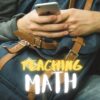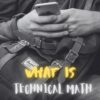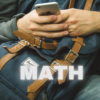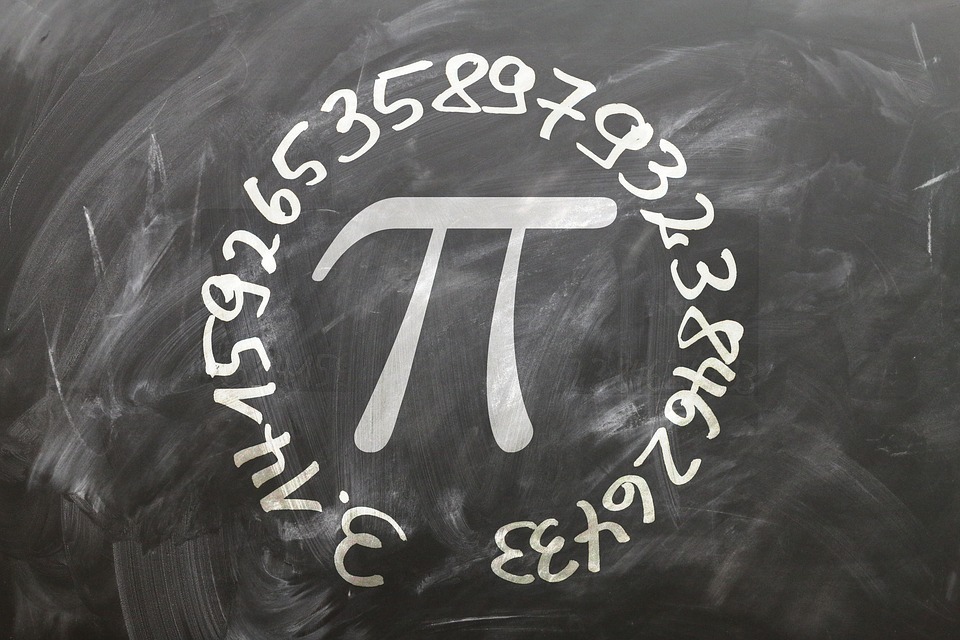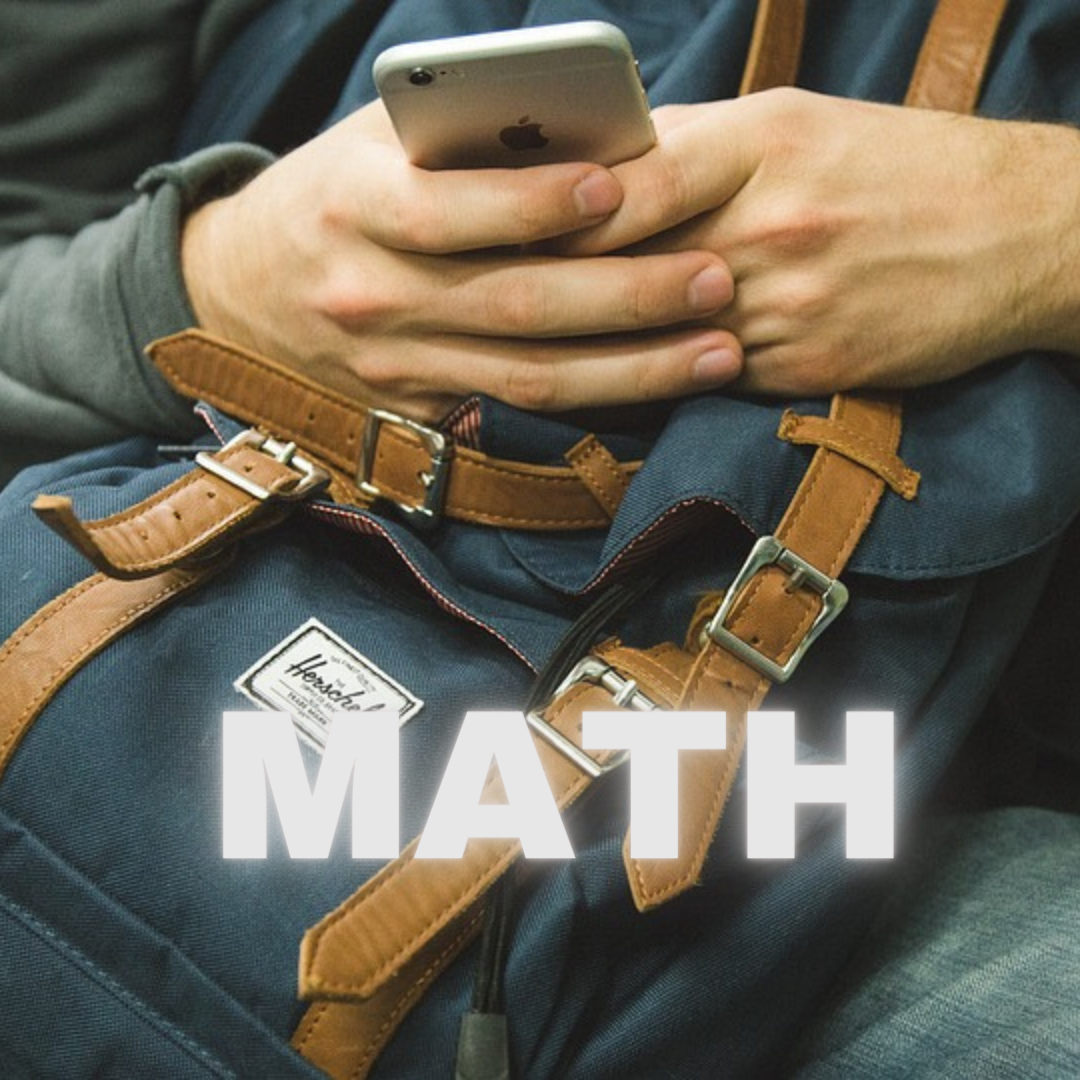Category: Math
Celebrate Pi Day and Maths Day
Two math celebrations are coming up on March 14th: Pi Day and World Maths Day
Pi Day
Pi Day is an annual celebration commemorating the mathematical constant π (pi). Pi Day is observed on March 14 since 3, 1, and 4 are the three most significant digits of π in the decimal form.
Daniel Tammet, a high-functioning autistic savant, holds the European record for reciting pi from memory to 22,514 digits in five hours and nine minutes.
Share this:
- Click to share on Facebook (Opens in new window) Facebook
- Click to share on X (Opens in new window) X
- Click to share on LinkedIn (Opens in new window) LinkedIn
- Click to share on Pinterest (Opens in new window) Pinterest
- Click to share on Telegram (Opens in new window) Telegram
- Click to email a link to a friend (Opens in new window) Email
- More
Teaching Math
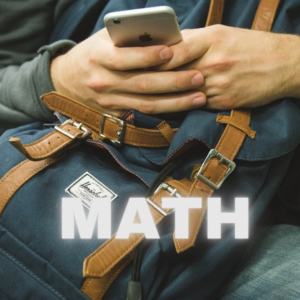 Every lower-grade teacher I know has huge numbers of students who love math but the older they get, the more those numbers shrink until by Middle School, they’re anemic, at best. The solution according to some students, is to instill the cerebral skills that support math prior to kindergarten. Here’s a great article from ASCD and EdSource on that subject:
Every lower-grade teacher I know has huge numbers of students who love math but the older they get, the more those numbers shrink until by Middle School, they’re anemic, at best. The solution according to some students, is to instill the cerebral skills that support math prior to kindergarten. Here’s a great article from ASCD and EdSource on that subject:
Math in early childhood is key, studies show
Studies show that mathematical reasoning ability is crucial in early education, and when children understand math before entering elementary school, they have higher achievement on both reading and math tests later in their school years. Carolyn Pfister, an education administrator for the California State Board of Education, said many adults have math anxiety that has been passed to children.
For more on math, read these articles:
Need math resources? Have students try these
15+ Websites to Teach Financial Literacy
Quick Review of 7 Popular Math Programs
Share this:
- Click to share on Facebook (Opens in new window) Facebook
- Click to share on X (Opens in new window) X
- Click to share on LinkedIn (Opens in new window) LinkedIn
- Click to share on Pinterest (Opens in new window) Pinterest
- Click to share on Telegram (Opens in new window) Telegram
- Click to email a link to a friend (Opens in new window) Email
- More
Math Scores Drop Again
Engaging children in math learning is a problem that continues relentlessly, year after year. We don’t seem to know how to fix the dropping math scores (and reading but that’s for another article). We can’t even blame it on COVID! If you’d like to understand this trend more, check out Education Week‘s article:
Young Adolescents’ Scores Trended to Historic Lows on National Tests. And That’s Before COVID Hit
Math scores for 9- and 13-year-old students on the “Nation’s Report Card” declined sharply from 2012 to 2020, and reading scores remained largely flat, according to the National Assessment of Educational Progress Long-Term Trend study released today…
Ask a Tech Teacher has several articles in December that discuss this issue:
Share this:
- Click to share on Facebook (Opens in new window) Facebook
- Click to share on X (Opens in new window) X
- Click to share on LinkedIn (Opens in new window) LinkedIn
- Click to share on Pinterest (Opens in new window) Pinterest
- Click to share on Telegram (Opens in new window) Telegram
- Click to email a link to a friend (Opens in new window) Email
- More
The Return to Rigorous Mathematics
One of my favorite PD sites, EdWeb, recently offered a free webinar (with CE Certificate) on Returning to Rigorous Mathematics. Here’s a preview:
As students return to a hopefully more typical school year, learning is likely to be anything but typical. Student and teacher experiences over the past 18 months have varied greatly and classrooms are filled with students representing a wider range of learning needs than ever before. The challenge for teachers is to help each student move their mathematics learning forward. While it will take time for most students to return to typical “on-grade-level” expectations, we must support students to move forward rather than picking up instruction where “regular school” left off in March 2020. Responding to this wide range of learners is part of the job in education; the pandemic has made this part of the work more prominent in many classrooms.
I have several articles over December that discuss this issue (links won’t work until publication date):
What is ‘Technical Math’–December 10, 2021 (this article)
Returning to Rigorous Mathematics–December 16, 2021
Math Scores Drop Again–December 17, 2021
If you’re struggling with math success in your classroom, here are some more resources offered by Ask a Tech Teacher:
Share this:
- Click to share on Facebook (Opens in new window) Facebook
- Click to share on X (Opens in new window) X
- Click to share on LinkedIn (Opens in new window) LinkedIn
- Click to share on Pinterest (Opens in new window) Pinterest
- Click to share on Telegram (Opens in new window) Telegram
- Click to email a link to a friend (Opens in new window) Email
- More
What is ‘Technical Math’?
The difficulties with engaging children in math learning grows each year. I have several articles coming up next week that discuss that issue (links won’t work until publication date):
What is ‘Technical Math’–December 10, 2021 (this article)
Returning to Rigorous Mathematics–December 16, 2021
Math Scores Drop Again–December 17, 2021
An excellent solution is to change the focus, teach kids what will be required. One of our Ask a Tech Teacher partners has a good article on that topic:
What Is Technical Math?
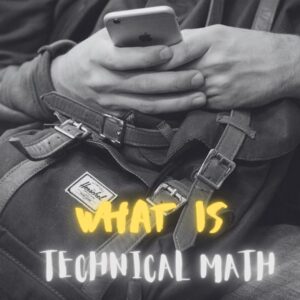 There’s an old joke about how kids are forced to learn algebra and trigonometry in school, but have no use for those subjects in real life. But in reality, that depends heavily on what kind of profession you choose to go into. A lot of professions you might think wouldn’t call for much math actually require it as a core skill set for certain trades, including plumbers, electricians, welders, and construction workers.
There’s an old joke about how kids are forced to learn algebra and trigonometry in school, but have no use for those subjects in real life. But in reality, that depends heavily on what kind of profession you choose to go into. A lot of professions you might think wouldn’t call for much math actually require it as a core skill set for certain trades, including plumbers, electricians, welders, and construction workers.
Why do trades like this require so much mathematics? These are supposed to be the jobs you don’t need extensive education for, right? Well, as it turns out, they’re not.
In fact, many technical trades require more math than some white-collar professions. Let’s look at welding, for example. To excel in their profession, a welder needs to understand and calculate concepts like material usage, which requires using fractions and sometimes algebra. They’ll also need to know how to use charts and graphs for some processes.
The same is true of construction workers, who must deal with equations, conversion of quantities, and taking measurements. In a typical workday, a construction worker may have to use equations to convert between units of measure, or use ratios to figure out the proportion of a roof’s length to its height. Getting some calculations wrong in construction work can have dangerous, if not deadly, consequences. In more advanced construction work (i.e. the jobs that pay well), they’ll even have to know some geometry.
The skills required for these sorts of jobs comes from a particular field, called “trade math” or “technical math.”
Share this:
- Click to share on Facebook (Opens in new window) Facebook
- Click to share on X (Opens in new window) X
- Click to share on LinkedIn (Opens in new window) LinkedIn
- Click to share on Pinterest (Opens in new window) Pinterest
- Click to share on Telegram (Opens in new window) Telegram
- Click to email a link to a friend (Opens in new window) Email
- More
Need math resources? Have students try these
 Struggling with helping students learn math when you can’t be at their side? Try these videos (check here for updates to links):
Struggling with helping students learn math when you can’t be at their side? Try these videos (check here for updates to links):
- Bright Storm math videos
- Khan Academy–online progressive math program; free
- Math Class with Terry V
- Math DrBob
- Math Videos
- Math videos–clean, nice
- MathTV–videos; create playlists of topics; Spanish option
- Numberphile
- Origo One — one-minute math videos
- Patrick JMT–math videos for lots of grade levels
- WOWMath
- YayMath — videos on math
Share this:
- Click to share on Facebook (Opens in new window) Facebook
- Click to share on X (Opens in new window) X
- Click to share on LinkedIn (Opens in new window) LinkedIn
- Click to share on Pinterest (Opens in new window) Pinterest
- Click to share on Telegram (Opens in new window) Telegram
- Click to email a link to a friend (Opens in new window) Email
- More
15+ Websites to Teach Financial Literacy
 Financial Literacy Month is recognized annually in Canada in November,[1] and National Financial Literacy Month was recognized in the United States in April 2004,[2] in an effort to highlight the importance of financial literacy and teach citizens how to establish and maintain healthy financial habits.
Financial Literacy Month is recognized annually in Canada in November,[1] and National Financial Literacy Month was recognized in the United States in April 2004,[2] in an effort to highlight the importance of financial literacy and teach citizens how to establish and maintain healthy financial habits.
When kids read that America’s $28 trillion+ debt is accepted by many experts as ‘business as usual’, I wonder how that news will affect their future personal finance decisions. Do they understand the consequences of unbalanced budgets? The quandary of infinite wants vs. finite dollars? Or do they think money grows on some fiscal tree that always blooms? The good news is: Half of the nation’s schools require a financial literacy course. The bad new is: Only half require a financial literacy course.
If your school doesn’t teach a course about personal economics, there are many online sites that address the topic as mini-lessons. Some are narrative; others games. Here are fifteen I like. See if one suits you (check here for updates on links):
- Banzai–financial literacy (free) online program
- Bartleby Economics Q&A
- BizKids–games to teach business and finance
- Budget Challenge–for HS and college
- Cash Crunch–games for youngers and olders (HS and college)
- Financial Football–as fun as it sounds
- Financial Literacy Quizzes–in a variety of financial topics for high schoolers
- Gen I Revolution
- H&R Block Budget Challenge game
- Life on Minimum Wage (a game–through TpT but free)
- Living Wage–what’s it cost to survive–by state, cities, counties
- Own vs Rent Calculator–plug in the numbers; see the results
- Personal Finance for MS
- Personal Finance Lab–stock market game
- Practical Money Skills
- Spent
Curriculum
Share this:
- Click to share on Facebook (Opens in new window) Facebook
- Click to share on X (Opens in new window) X
- Click to share on LinkedIn (Opens in new window) LinkedIn
- Click to share on Pinterest (Opens in new window) Pinterest
- Click to share on Telegram (Opens in new window) Telegram
- Click to email a link to a friend (Opens in new window) Email
- More
Celebrate Pi Day with all things 3.14
Two math celebrations are coming up this month:
Pi Day
World Maths Day
Pi Day
Pi Day is an annual celebration commemorating the mathematical constant π (pi). Pi Day is observed on March 14 since 3, 1, and 4 are the three most significant digits of π in the decimal form.
Daniel Tammet, a high-functioning autistic savant, holds the European record for reciting pi from memory to 22,514 digits in five hours and nine minutes.
Share this:
- Click to share on Facebook (Opens in new window) Facebook
- Click to share on X (Opens in new window) X
- Click to share on LinkedIn (Opens in new window) LinkedIn
- Click to share on Pinterest (Opens in new window) Pinterest
- Click to share on Telegram (Opens in new window) Telegram
- Click to email a link to a friend (Opens in new window) Email
- More
Math Word Problems
 Looking for a more interesting way to teach math in these unusual times? Here are a variety of sites that share Math Word Problems–the real-world way to teach what some see as a daunting subject:
Looking for a more interesting way to teach math in these unusual times? Here are a variety of sites that share Math Word Problems–the real-world way to teach what some see as a daunting subject:
- Expii Solve–math word problems and puzzles, lots of them
- IXL Word Problems–by grade
- Math and Logic Problems
- Math Pickle–puzzles, games, and mini competitions
- Prodigy Math Word Problems–about 120
- Thinking Blocks–free (app)
- Word problems–type them in, Wolfram/Alpha provides the answer and the how-to. Amazing.
- Word Problems from Math Playground
- Would You Rather–more like a justification for decisions using math
Click for more online math resources.
Share this:
- Click to share on Facebook (Opens in new window) Facebook
- Click to share on X (Opens in new window) X
- Click to share on LinkedIn (Opens in new window) LinkedIn
- Click to share on Pinterest (Opens in new window) Pinterest
- Click to share on Telegram (Opens in new window) Telegram
- Click to email a link to a friend (Opens in new window) Email
- More
National STEM/STEAM Day Nov. 8th
 National STEM Day is November 8 and the unofficial holiday celebrates science, technology, engineering and mathematics (STEM) education throughout the United States.
National STEM Day is November 8 and the unofficial holiday celebrates science, technology, engineering and mathematics (STEM) education throughout the United States.
Here are some great ideas for celebrating:
Ten Ways to Celebrate National STEM Day with NASA | NASA
National STEM Day is November 8 and the unofficial holiday celebrates science, technology, engineering and mathematics (STEM) education throughout the United States. The day focuses on helping students advance in STEM fields, a priority of NASA as we continue to push the boundaries of exploration and soar into the future. In celebration of National STEM Day, we challenge you to engage and inspire the Artemis generation as we go forward to the Moon by 2024 and continue to innovate in the areas of Earth science and aeronautics. To help you join in on the festivities, here are 10 ways you can celebrate National STEM Day with us.
49 STEM Activities for Students
On November 8th 2019, we will celebrate National STEM Day to get kids excited about Science, Technology, Engineering, and Math (STEM). Together the STEM subjects represent some of the fastest-growing and most in-demand fields in the United States.
While STEM topics seem a natural fit in high schools and post-secondary curriculum, education experts are promoting a focus on STEM subjects for younger and younger children. You might be asking, what will a four or five-year-old student be able to understand about these subjects?
Share this:
- Click to share on Facebook (Opens in new window) Facebook
- Click to share on X (Opens in new window) X
- Click to share on LinkedIn (Opens in new window) LinkedIn
- Click to share on Pinterest (Opens in new window) Pinterest
- Click to share on Telegram (Opens in new window) Telegram
- Click to email a link to a friend (Opens in new window) Email
- More




